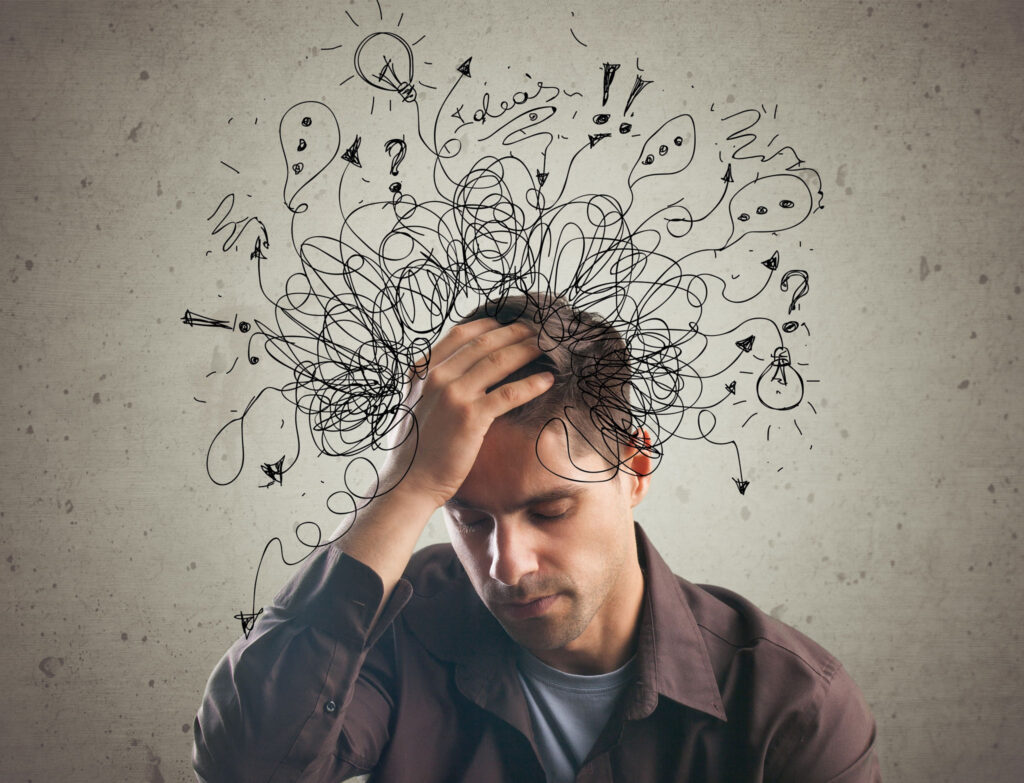
Attention-Deficit/Hyperactivity Disorder (ADHD) in adults can lead to challenges with focus, organization, time management, and impulsivity, affecting both personal and professional life. At Medicine Park Mental Health, we offer tailored, evidence-based treatments to help adults with ADHD manage their symptoms and lead fulfilling, productive lives.
Adult Symptoms of ADHD
By the time a person with ADHD enters adulthood they have usually developed compensatory strategies to manage and even hide their ADHD symptoms. Those strategies are sometimes adaptive like setting up routines and systems, making plans, staying organized, creating limits, writing things down, engaging in regular exercise and developing healthy eating habits, etc. Without a rich network of adaptive coping strategies a person living with ADHD may find themselves searching for that ok feeling by self-medicating with caffeine, alcohol, or other substances, or aiming for such extreme perfection that they end up engaging in self-sabotaging behaviors leading to guilt, shame, and the development of a negative narrative. Something that we hear often from adults living with ADHD is that they often experience Imposer Syndrome, the feeling that they are a fraud in their own life and live with constant fear of being “found out.”
There is not a cure for ADHD, but it is highly treatable using a multidisciplinary approach.
There are a variety of stimulant and non-stimulant medications that are effective at alleviating ADHD symptoms. However, they generally only work to manage some of the symptoms and they do not address an important non-pharmaceutical component of treatment – developing the social skills and tools necessary to work with the ADHD brain rather than against it. The best treatment for adults with ADHD involves a multidisciplinary approach comprised of medication, psychotherapy, and psychoeducation.
Cognitive Behavioral Therapy or CBT is a common therapeutic modality used to treating ADHD. CBT can help to address and counter irrational thoughts and alleviate troubling emotions and behaviors that are disrupting everyday functioning. Psychoeducation is essential for normalizing feelings and for cultivating healthy habits, patterns, and coping strategies.
If you have a loved one with ADHD, it is crucial to learn as much as you can about the disorder to be able to better support them.
Support, don’t Enable.
One of the most helpful things you can do for your loved one with ADHD is to empathize without judgement.
Remember that they are not forgetting things, making careless mistakes, losing focus, having an emotional meltdown, etc. on purpose or because they are lazy. People with ADHD are known to be passionate, creative, enthusiastic, intuitive people. They thrive on encouragement and will only give up if they feel demoralized.
ADHD is not an excuse, it’s an explanation.